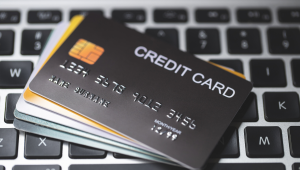
While it may not always be convenient, carrying plastic instead of raw cash can help cut down most of the expenses you make every day. Though you might not have realized this; the little money you toss around daily that appear to be insignificant to your overall budget often amount to hundreds and thousands of dollars in the long run. Imagine how much this can add to your savings! Those of us who have been there will readily admit to the fact that the more money you carry around, the more predisposed you are to spend.
Agreed, we’re yet to get to the point where everything can be paid for with a credit card or some reward points. But then there’s much you can do to cut down on your daily spending even if you can’t do without cash. If you want your finances to improve, then you need to prioritize your savings, even in the face of a debt. Even if you work extra hard, without getting rid of some unnecessary expenses, you may still not have enough to put aside. Believe it or not; it’s more of how much you’re willing to save than how much you earn. Applying the money tricks that follow will not make you a millionaire overnight, but it will certainly increase your savings by at least 20%. And guess what…they all have to do with cash. So you’ve absolutely nothing to worry about. Now on to the cash tricks…
Move Around With Large Bills
One of the easiest ways you can overcome the “small spending syndrome” is to carry large bills around. Since it’s not always possible to resist the temptation of going out with cash, you might as well consider filling your pocket with some of your bills. This way you can overcome the urge to spend on anything you come across, knowing that the money is meant for something else.
Though it’s not really practical to pay for utility bills with cash, however, other expenses like your TV and grocery bills can be paid in cash. But be careful of the denomination. You’re likely to spend small notes they’re part of your bill. Don’t worry, it’s a habit problem; one you can overcome by carrying large notes.
So to make this trick work, consider carrying large bills. Why? Because they are more difficult to spend. This is well proven by a cognitive bias known as the “Denomination Effect”. But watch out, there’s a danger here. If you end up breaking up the large bills, then you are bound to spend even more money at the end of the day which of course is detrimental to your quest to increase your savings. So be careful to follow through; you must apply a lot of financial discipline.
Save The Loose Change
Though not many of us realise it, college taught us other things apart from passing exams-one of them is saving. For those of us who had a dorm room, it was all about the big jar with our “little” savings. You can bring back the fashion here. Do you know that it’s actually possible to save up to 15% from your daily expenses without even being aware of it? You want to know how? It’s simple…just gather all the loose change you received during the day and stack them up in a piggy bank or somewhere secure. Go through every one of your pockets and wallet and gather anything cash or “coins” you find there. Ideally, this should be done at the end of the day so nothing is left behind.
Keep The “common” Denomination In A Piggy Bank
Compared to other denominations, $5 notes probably count “less” in your pocket. But instead of spending the bills (which obviously seems reasonable), you can save it in a piggy bank. And wait for it to bear fruit. Spending is easier and it won’t be surprising if you spend every one of small denomination bills you get. Remember the “Denomination effect” we introduced earlier? It still comes to pay here.
This is why you will need a little more discipline and commitment to make this trick successful. Don’t think $5 is negligible because it’s not. When properly stored, it could turn out to become a cushion to cover emergency expenses which cannot be settled by any other means. Don’t worry if you find it hard to put aside every $5 note you receive every day. Instead, you can select 3 days in every month to ransack all the notes in your wallet and pockets. You can count the notes you find as unlucky and meant for your piggy bank, while the ones you receive every other day can be spent as usual. Like we said, you can spend the small notes later when an urgent need arises or you can just live them to bud. It’s your call.
Reduce Your Visits To The ATM
For most of us, the ATM stand is a favourite spot. Any little cash draught, the next moment, we’re already punching numbers in the nearest machine to fill our wallets again. While this may seem convenient, it can make you lose control of your budget. And very soon, you may not even know if you have any savings at all. As we indicated earlier, saving money is something that is premeditated. You must keep track of your budget so you don’t spend beyond your limit. And you can’t achieve that by withdrawing from an ATM, three or four times a week. So here’s the trick…instead of withdrawing so many times, why not make a draft of how much you need (this should basically include important expenses) for a week. Then pick a day in the week to withdraw the amount you calculated. If you need more money during the “work days”, then you can choose a day like Sunday for withdrawal. However, if most of your expenditure is during the weekend, then withdrawal will be better on Fridays.
By limiting your withdrawal this way, you will not only save yourself some time for other things, you will be developing a very important financial habit…which is discipline. When you’re comfortable withdrawing once a week, then you can step up the game by withdrawing once a month. But at the same time, you will need a safe place to stash all the cash. Find out more from https://moneyiq.sg










